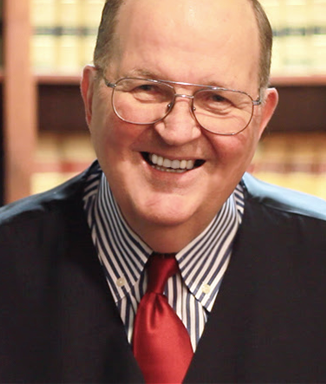Largest Virginia Informed Consent Case at the Time (Part 2)
So the jury that was selected was a jury of seven men and the judge also selected two alternates so there were a total of nine men. It turned out that they were all men jurors to hear the case. The case went on and it was tried for two days. During the first day of trial one of the jurors kept falling asleep in the jury box. One of the alternate jurors was seen to be taking copious handwritten notes regarding the testimony that was given that first day. The judge in the case appeared to be very pro-doctor very anti-Mr. Jones in the case. He made some remarks that indicated that.
On the second day the juror that had been sleeping in the jury box the day before showed up 45 minutes late for court and the lawyers agreed to approach the judge and ask that he be replaced. He was replaced by the juror that had been taking copious notes the day before. The case went on and at about 4:30 the jury got the case and took it into the jury room.
At about 5:30 the judge called the jury back into the courtroom and indicated to the jury that it was the customary practice for the case to be stopped and that deliberations should be continued the next day. At which point the foreman of the jury, who was the man who had been taking copious notes stood up and said “No your honor we do not want to do that. We want to decide this case tonight.” The judge was taken aback by that but he agreed to let them go back.
About 45 minutes later the jury came back with a verdict for Mr. Jones in the amount of $1.5 million. At the time the case was tried there was a limit on the amount of damages one could receive in a medical malpractice case of $750,000 and the judge lowered the award to that amount.
As a consequence of that Mr. Jones was able to hire his nephew who moved into Mr. Jones’ home and helped to take care of Mr. Jones and his wife.
It was discovered by chance several months later that the juror who had been taking copious notes and turned out to be the foreman of the jury actually had a sister who a quadriplegic and no one knew that at the time. Evidently he took great offense at some of the remarks that the judge had made regarding how Mr. Jones’ wife could move him from his chair to his bed and just move him around. Mr. Jones was about twice as big as his wife so it was obviously a very damaging thing for the judge to have said. The foreman of the jury knew what it was like to deal with a quadriplegic and he knew that the judge didn’t know what he was talking about, and he knew the amount of work that would be required to adequately take care of a quadriplegic.
At the time of that verdict, it was the largest informed consent verdict in the history of Virginia. Informed consent means that the doctor did not adequately inform Mr. Jones of the risks of his surgery. The handwritten note the the doctor had given’s Mr. Jones’ daughter was put into evidence and was very damaging as to how the doctor had approached the case. A footnote to the case is that the doctor, after this case, stopped trying to practice both orthopedic and neurological practice and limited himself to orthopedic work.
